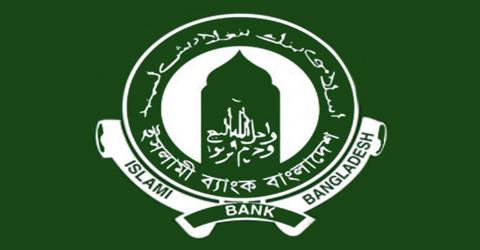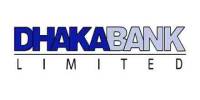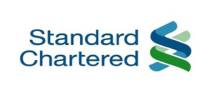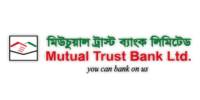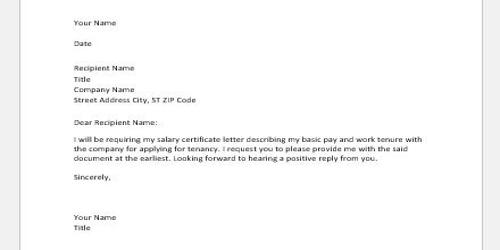The main objective of this report is to get a clear idea about Foreign Exchange Operation of Islami Bank Bangladesh Limited and how it runs and what function it done. Other objectives are to know about the overall Banking system and analyze the financing system of the bank and to find out if the bank has any field to improve upon and gather contribution towards the country’s economy. Finally examine the profitability and productivity of the bank and familiarize the working hours,value and environment of the bank.
Purpose of the report
- The main objective of the study is to get a clear idea about the bank and how it runs and what function it done.
- To know about the overall Banking system.
- To apply theoretical knowledge in to practical arena.
- To gather practical knowledge.
- To analyzee the financing system of the bank and to find out if the bank has any field to improve upon and gather contribution towards the country’s economy.
- To examine the profitability and productivity of the bank.
- To familiarize the working hours,value and environment of the bank.
Methodology
Both the primary as well as the secondary form of information was used to prepare the report. The details of these sources are highlighted below.
Primary Sources:
- Customer and historical data of customers.
- Interviews with the officers as well as the Trainers and the course coordinator of IBTRA for our internship course.
Secondary Sources:
Internal Sources
- IBBL Manual
- IBBL Annual Report
- Business Principal Manual
- Business Instruction Manual.
External Sources
- Different books and periodicals related to the banking sector
- Bangladesh Bank Circulars
- Newspapers
- Website information
Data collecting instruments:
In-depth interview during the exploratory research, in-depth interviews were conducted with Principle Officers, officers, probationary officers and customers.
Islamic Banks in Bangladesh:
Islami Bank Bangladesh Limited (IBBL) is considered to be the first interest free bank in Southeast Asia. It was incorporated on 13-03-1983 as a Public Company with limited liability under the companies Act 1913. The bank began operations on March 30, 1983.
IBBL is a joint venture multinational Bank with 63.92% of equity being contributed by the Islamic Development Bank and financial institutions like-Al-Rajhi Company for Currency Exchange and Commerce, Saudi Arabia, Kuwait Finance House, Kuwait, Jordan Islamic Bank, Jordan, Islamic Investment and Exchange Corporation, Qatar, Bahrain Islamic Bank, Bahrain, Islamic Banking System International Holding S. A., Luxembourg, Dubai Islamic Bank, Dubai, Public Institution for Social Security, Kuwait Ministry of Awqaf and Islamic Affairs, Kuwait and Ministry of Justice, Department of Minors Affairs, Kuwait. In addition, two eminent personalities of Saudi Arabia namely, Fouad Abdul Hameed Al-Khateeb and Ahmed Salah Jamjoom are also the sponsors of IBBL.
ICB Islamic bank: often called the second Islamic bank in Bangladesh. Commenced banking business as a scheduled bank on May 20, 1987. this bank started it’s banking business with the name “ Al Baraka Islami Bank Limited”. Later its name was changed to “Oriental Islami Bank Limited”. But now ICB has bought the bank and it’s name has been changed to “ICB Islamic bank limited”. Apart from extending conventional commercial banking facilities to its customers, the bank has also given substantial financial support to the development of industrial and real estate projects.
Al-Arafa Islami Bank Bangladesh Limited commenced its business as a scheduled bank on September 27, 1995. The Bank follows the Shariah principles in investment and invests its funds under Mudaraba, Musharaka, Bai-Muajjal, Bai-Salam, etc.
Social Investment Bank Limited is another bank guided by the Islamic principles. It started its journey in November 1995.
Islami Bank Bangladesh Ltd: At a Glance:
Bangladesh is one of the largest Muslim countries in the world. The people of this country are deeply committed to Islamic way of life as enshrined in the Holy Qur’an and the Sunnah. Naturally, it remains a deep cry in their hearts to fashion and design their economic lives in accordance with the precepts of Islam. The establishment of Islami Bank Bangladesh Limited on March 13, 1983, is the true reflection of this inner urge of its people, which started functioning with effect from March 30, 1983. This Bank is the first of its kind in Southeast Asia. It is committed to conduct all banking and investment activities on the basis of interest-free profit-loss sharing system. In doing so, it has unveiled a new horizon and ushered in a new silver lining of hope towards materializing a long cherished dream of the people of Bangladesh for doing their banking transactions in line with what is prescribed by Islam. With the active co-operation and participation of Islamic Development Bank (IDB) and some other Islamic banks, financial institutions, government bodies and eminent personalities of the Middle East and the Gulf countries, Islami Bank Bangladesh Limited has by now earned the unique position of a leading private commercial bank in Bangladesh.
History:
Establishment of Islamic Development Bank (IDB) by the OIC member states in the year 1975 has been proved to be a break through in the expansion of Islamic Shari’ah based finance and specially banking throughout the world. As a founder member of IDB, the Government of Bangladesh also had the commitment to establish Islamic banks, which was reflected in Different steps taken by the governments of the country. The OIC members consented to the proposals to introduce Islamic economy and banking in their respective countries held in the foreign ministers’ conferences in 1978 and 1980 in Dakar and Islamabad respectively. In the year 1981, OIC in its 3rd summit held in Makkah approved the Proposition submitted by Bangladesh to introduce separate banking system following Islamic ideology. As per decision, the GOB sent representatives to the Middle Eastern countries to learn the existing banking systems in those countries. In the private sector, the Islamic Economics Research Bureau (IERB) was the first organization that took active initiative in this regard. They arranged a national seminar on Islamic Economics and banking in the year 1979 and inspired by the discussion and the papers presented in the seminars, some local bankers formed ‘Islami Bank Working Group’. The IERB again arranged an international seminar in 1980. After the seminar, Dhaka based ‘Muslim Businessman Society’ (later renamed as ‘Industrialist and Businessmen Association’) under the leadership of renowned industrialist Abdur Razzaque Lasker, took initiative to establish an Islamic bank and applied to the government for permission. At this stage, the GOB provided necessary permission in the year 1983 and at last ‘Islami Bank Bangladesh’ was registered under Company Act in which 19 Bangladeshi national, 4 Bangladeshi institutions and 11 banks, financial institutions and government bodies of the Middle East and Europe including IDB and two eminent personalities of the Kingdom of Saudi Arabia joined hands to make the dream a reality.
Aims of IBBL:
IBBL aims are —
- To conduct interest-free banking.
- To establish participatory banking instead of banking on debtor-creditor relationship.
- To invest on profit and risk sharing basis.
- To accept deposits on Mudaraba & Al-Wadeah basis
- To establish a welfare-oriented banking system.
- To extend co-operation to the poor, the helpless and the low-income group for their economic up liftmen.
- To play a vital role in human development and employment generation
- To contribute towards balanced growth and development of the country through investment operations particularly in the less developed areas.
- To contribute in achieving the ultimate goal of Islamic economic system.
Objectives of Islami banking:
The primary objective of establishing Islamic banks all over the world is to promote, foster and develop the application of Islamic principles in the business sector. More specifically, the objectives of Islamic banking when viewed in the context of its role in the economy are listed as following:
- To offer contemporary financial services in conformity with Islamic Shariah;
- To contribute towards economic development and prosperity within the principles of Islamic justice;
- Optimum allocation of scarce financial resources; and
- To help ensure equitable distribution of income.
These objectives are discussed below.
Offer Financial Services: Interest-based banking, which is considered a practice of Riba in financial transactions, is unanimously identified as anti-Islamic. That means all transactions made under conventional banking are unlawful according to Islamic Shariah. Thus, the emergence of Islamic banking is clearly intended to provide for Shariah approved financial transactions.
Islamic Banking for Development: Islamic banking is claimed to be more development- oriented than its conventional counterpart. The concept of profit sharing is a built-in development promoter since it establishes a direct relationship between the bank’s return on investment and the successful operation of the business by the entrepreneurs.
Optimum Allocation of Resources: Another important objective of Islamic banking is the optimum allocation of scarce resources. The foundation of the Islamic banking system is that it promotes the investment of financial resources into those projects that are considered to be the most profitable and beneficial to the economy.
Islamic Banking for Equitable Distribution of Resources: Perhaps the must important objective of Islamic banking is to ensure equitable distribution of income and resources among the participating parties: the bank, the depositors and the entrepreneurs.
Functions OF IBBL:
The functions of Islami Bank Bangladesh Limited are as under:
- To maintain all types of deposit accounts
- To make investment.
- To conduct foreign exchange business.
- To extend other banking services.
- To conduct social welfare activities through Islami Bank Foundation.
Foreign Exchange
Foreign trade can be easily defined as a business activity, which transcends national boundaries. These may be between parties or Government ones. Trades among nations are a common occurrence and normally benefit both the exporter and importer. In many countries, international trade accounts for more than 20% of their national incomes.
Foreign trade can usually be justified on the principle of comparative advantage. Accounting to this economic principle, it is economical profitable for a company to specialize in the production of that commodity in which the producer country has the greater comparative advantage and to allow the other country to produce that commodity in which it has the lesser comparative advantage. It includes the spectrum of goods, services, investment, technology transfer etc.
This trade among various countries causes for close linkage between the parties dealing in trade. The bank, which provides such transactions, is referred to as rendering international banking operations. International trade demands a flow of goods from seller to buyer and of payment from buyer to seller. And this flow of goods and payment are done through letter of credit (L/C).
Function of foreign Exchange department:
Export:
- Pre-shipment advantages.
- Negotiating of foreign bills.
- Exports guaranties
- Purchase of foreign bills.
- Advance against bills for collection.
- Advising / conforming setters (latter of credit).
- Advance for differed payments exports.
Imports:
- Bills for collection
- Advance bills.
- Opening of letter of credit (L/C)
- Import loan & guarantees.
Remittances:
- Issue of DD, TT, MT, etc.
- Payment of DD, TT, MT etc.
- Sale and enhancement of foreign currency notes.
- Issue and enhancement of traveler’s cheque.
- Non-resident accounts.
The most commonly used document in foreign exchange:
- Documentary letter of credit.
- Bill of exchange
- Bill of lading
- Commercial invoice
- Certificate of origin of goods
- Inspection certificate
- Packing list
- Insurance policy
- Pro-forma invoice / indent
- Master receipt
- GSP certificate
Investment
The special feature of the investment policy of the Bank is to invest on the basis of profit-loss sharing system in accordance with the tenets and principles of Islamic Shariah. Earning profit is not the only motive and objective of the Bank’s investment policy rather emphasis is given in attaining social good and in creating employment opportunities.
Pursuant to the Investment Policy adopted by the Bank, a ‘7-year Perspective Investment Plan’ has been drawn-up and put into implementation. The plan aims at diversification of the investment port-folio by size, sector, geographical area, economic purpose and securities to bring in phases all sectors of the economy and all types of economic groups of the society within the fold of Bank’s investment operations.
Accordingly, the plan envisages composition of the investment port-folio with 2.5% for agriculture and rural investment, 18% for industrial term investment, 13% for industrial working capital, 10% for housing and real-estate, 4% for transport and communication, 0.5% for electricity, gas, water and sanitation services, 2% for storage, 43% for import, export and local trade and trade related activities 1% for poultry and dairy,2% for Rural Development Scheme, 2.5% for other Special Scheme, 0.5% for Micro Industry and 1% for other productive purposes by the end of the plan period, i.e. the year 2002.
Further, in order to diversify investment portfolio, the Bank engaged itself in investment operations through special schemes introduced during the years. The Bank is planning to introduce yet other new investment schemes in addition to welfare-oriented Investment Schemes, Rural Development Scheme, Transport Investment Scheme, Car Investment Scheme, Small Business Investment Scheme, Doctors Investment Scheme, Household Durables Investment Scheme, Housing Investment Scheme and Agricultural Implements Investment Scheme etc. Besides, the Bank is financing various economic groups in different sectors in both urban and rural areas for enlistment of their economic condition.
Objectives and Principles
The objectives and principles of investment operations of the Bank are:
- To invest fund strictly in accordance with the principles of Islamic Shariah.
- To diversify its investment portfolio by size of investment, by sectors (public & private), by economic purpose, by securities and by geographical area including industrial, commercial & agricultural.
- To ensure mutual benefit both for the Bank and the investment-client by professional appraisal of investment proposals, judicious sanction of investment, close and constant supervision and monitoring thereof.
- To make investment keeping the socio-economic requirement of the country in view.
- To increase the number of potential investors by making participatory and productive investment.
- To finance various development schemes for poverty alleviation, income and employment generation with a view to accelerating sustainable socio-economic growth and enlistment of the society.
- To invest in the form of goods and commodities rather than give out cash money to the investment clients.
- To encourage social enlistment enterprises.
- To shun even highly profitable investment in fields forbidden under Islamic Shariah and are harmful for the society.
- The Bank extends investments under the principles of Bai-Murabaha, Bai-Muazzal, Hire Purchase under Shirkatul Meelk and Musharaka. The Bank is making sincere efforts to go for investment under Mudaraba principle in near future.
Investment Policy of IBBL
Investment operation of the Bank is of vital importance as the greatest share of total revenue is generated from it. Maximum risk is centered in it and the very existence of a Bank mostly depends on prudent mgt. Of its investment policy.
A sound well defined, well planned and appropriate investment policy frame work is a pre-requisite for achieving the goal of the Bank i.e. implementation and materialization of the economic and financial principles of Islam in the Banking area and justice in trade, commerce and industry and to build socio-economic infrastructure, create opportunity for income and sustained economic growth of the country.
Investment perspective plan of IBBL.
a) 7 – year’s perspective plan (1996-2002).
b) 5 – Years perspective plan (2003-2007).
5 – Years’ perspectives Investment Finn (2003-2007).
a) By size of Accounts, (3000-250 core)
b) By Sector (Public & Private) 5% (Rural) & 95% (Urban)
c) By Areas (Urban & Rural) (6to 10%- 94 to 90%)
d) By Economic purpose (2% to 40%).
– By Securities (2%-70%)
– By mode (7.5% to 65.50%).
Investment portfolio of Islami Bank Bangladesh ltd.
Port-folio Management
a) Port-folio Management of a Bank
- Linear Programming (Maturity of Liability with the Asset).
- Pull of fund approach.
- Liability Management.
b) Importance of Portfolio Management, particularly for an Islamic Bank.
- Importance of Money market.
- Importance of Investment
Salient Features of Investment policy of IBBL.
a) If is an ideological Banking organization.
Firmly committed to implement & materialize the economic and financial principles of Islam the Banking arena.
Objectives
a) To do away with disparity and establish justice in the trade, commerce and Industry.
b) To build socio-economic infrastructure, create opportunities for employment and income generation & poverty alleviation.
c) Contribute to the Socio-economic enlistment and sustained Economic growth of the country.
d) Strict observance of the Islamic Shariah Principles.
Investment to National Priority Sectors.
f) Investment to Trade, Commerce, Industry, Foreign Trade, IT, Small Scale Industries, Transportation, Service sector.
Other Features
- Observance of the legal Investment Limit of the Bank (90% of total deposit).
- Observance of Legal Investment Limit per client-50% of equity (50% funded, 50% non-funded).
- Optimum utilization of Invest able fund.
- Profitability of the Investment.
- Safety & Security of the investment.
Composition of Portfolio.
- Money market port- folio (up to one year).
- Capital Market portfolio (above one year).
- General Investment Port-folio.
Strategies.
- Fort-folio having high return shall be preferred.
- Lower risk shall get preference.
- Flexibility in clearing R…R. case-to-case basis depending on the Risk, amount of investment, Nature of investment, etc.
- Emphasis is given to collage & small industries, rural industries.
- Export oriented Import substitute industries.
- Labor-intensive industries.
- Micro investment/small investment schemes.
Miscellaneous.
(A) Investment port-folio_ (As on December, 07)
1) Total Deposit : Tk.1743787 core.
2) Total Investment : Tk.656717 core.
3) Total overdue (OD) : Tk.33431 core.
4) Total No. Of Deposit clients : About – 35034 lac
(B) Project Investment Prot-folio (As on December, 07)
No. Of Projects
Bank Finance Self finance Total
Garments related 73 95 168
Textile related 88 11 99
Others 343 25 368
(C) Total Investment Amount (Taka in core)
Industry (Term) –1218.13.00 (18.18%)
Industry (W/C) –1634. 10 (24.30%)
Special Schemes –394. 74 (5.17%)
Real Estate –523.26 (7.78%)
Trade & Commerce/others –2953.18 (43.92%)
6723.41 corers
IBBL cannot operate all investment moods under Islamic shariah because of some problems. That’s why IBBL only operates the following types of investment moods:
IBBL 5 years performance at a glance
| Particulars | 2003 | 2004 | 2005 | ||
| Authorized Capital | 1,000.00 | 1,000.00 | 3000.00 | ||
| Paid-up Capital | 640.00 | 640.00 | 1920.00 | ||
| Reserved Fund | 1,998.04 | 2,852.07 | 3,280.37 | ||
| Total Equity | 2,993.24 | 3,540.52 | 5,266.47 | ||
| Deposits (including Bills Payable) | 41547.29 | 55,461.62 | 69,941.79 | ||
| Investments (including Inv. In Shares) (Gross) | 37,648.75 | 49,185.92 | 59,041.65 | ||
| Import Business | 25,907.00 | 33,788.00 | 46,237.00 | ||
| Export Business | 16,082.00 | 16,673.00 | 21,738.00 | ||
| Remittance | 9,879.00 | 14,670.00 | 16,668.00 | ||
| Total Foreign Exchange Business | 51,868.00 | 65,131.00 | 84,643.00 | ||
| Total Income | 4,259.55 | 5,234.07 | 6,841.29 | ||
| Total Expenditure | 3,683.43 | 4,240.02 | 6,039.28 | ||
| Net Profit before Tax | 576.12 | 994.05 | 802.01 | ||
| Payment to Govt. (Income Tax) | 181.48 | 397.62 | 426.61 | ||
| Dividend | 25% | 25% | 20% | ||
| Fixed Assets | 1,276.89 | 1,723.43 | 2,036.66 | ||
| Number of Foreign Correspondents | 815 | 830 | 840 | ||
| Market Value per Share (Take) Highest) | 3,205 | 3,956 | 4,548.00 | ||
| Capital Adequacy Ratio | 9.24% | 8.64% | 9.43% |
General Banking
General Banking: it includes:-
Mobilization of deposits.
- Receipts and payment of cash.
- Handling transfer transaction.
- Operation of clearing house.
- Maintenance of accounts with Bangladesh bank and payment order.
- Collection of cheque and bill.
- Issue and payment of Demand Draft, telegraphic transfer and Payment Order.
- Executing customers standing instruction.
- Maintenance of safe deposit lockers.
- Maintenance of international accounts of the bank.
While doing all the above noted work IBBL issue cheques- book, Deposit account operating form, SS card, Ledgers, Cash book, Deposit account ledgers, preparation statement of accounts, Pass book, Balance of different accounts and calculates profits. Islami Bank Bangladesh Limited offers to open the following account to the depositors:
- Al-wadeeah Current Account.
- Mudaraba Savings Account.
- Mudaraba Term Deposit Account. (3 month / 6 month / 12 month / 36 months term)
- Mudaraba Special Notice Account.
- Mudaraba Hajj Savings Account (1 to 25 year term)
- Mudaraba special savings (pension) Account (5 year to 10 year term)
- Mudaraba Savings bond Scheme (5 year & 8 year)
- Mudaraba Foreign Currency Deposit Account.
- Mudaraba Monthly Deposit Account.
- Mudaraba Moharana Account.
Bank accepts deposit: –
Bank receives deposit by different accounts.
Those are of 2 (two) types
A) Al Wadeah: – Current A/C is conducted under Al Wadeah system
B) Mudaraba mode: – Client – Sahib Al Mall Bank- Mudaraba.
Under this arrangement- profit distribution under agreement ratio and loss (if any) will be borne by Shaheb-Al-Maal.
Under Mudaraba mode
There are many accounts as under:
a) M S A – Mudaraba Savings Account
b) M H S A – Mudaraba Hajj Savings Account
c) MSB– Mudaraba Savings Bond
d) MSS – Mudaraba Special Scheme
e) MTDR– Mudaraba Term Deposit Receipt
f) MMPDS– Mudaraba monthly profit distribution scheme.
g) MMS – Mudaraba Manor Savings A/C.
h) MSNA– Mudaraba short notice A/C.
who can open A/C-?
a) Persons over 18 (eighteen) years (except some restricted person)
b) Account of Club,
C) Association
d) Agent,
e) Govt.
f) Semi-Gov.,
g) Organization,
h) Liquidators,
I) Minor.
j) Married Women,
k) Profanation Ladies,
l) Illiterate persons, etc.
Deposits are received through cash or by instruments
Payment is done by instrument/ document
General Banking operations done by various departments/ section:
I) Cash section,
ii) Bills and Remittance section,
iii) Clearing house section,
iv) Accounts section is ennoblement is various activities,
v) Etc.
Function of Cash Section: –
(a) Cash Receipt
(b) Cash Payment
(c) Issuance of Cheque Book
(d) Passing, Cancellation and Payment of Cheque
Functions of Bills and Remittance section: –
Issuance. Payment and Cancellation of DD. IT and P.O. OBC, IBC.
Clearing and Collection Department: –
Clearing and collection of instruments of different banks through central bank or its representative.
Accounts section: –
Book keeping, maintenance of vouchers preparation of General ledger & clean cash book. Maintenance of sundry, suspense etc. A/c for internal purpose.
Reconciliation of IBG A/Cs: –
IBDA- Inter Branch Debit Advice IBCA – Inter Branch Credit Advice
custody and maintenance: –
Custody and maintenance of AOF, SS Cards, Cheque Books. Ledgers. Statement of A/C voucher and secrecy of Accounts.
Locker Service
Volt &. Maintenance of Strong Room: –
Cash & vouchers kept under lock and key under joint custody. Cash covered by insurance. Transaction hour is guarded by armed security guard.
Proper House keeping:
Maintenance of Books and Records and Computer (IBBS Software).
General Characteristics of Deposit Account
Al-Wayadia Current A/C (AWCA)
AWCA accounts are unproductive in nature as far as banks loan able investment fund is concerned sufficient fund has to be kept in liquid form, as current deposits are demand Liabilities. Thus huge portion of his fund becomes no performing. For this reason banks do not pay any of AWCA CD account holder. Businessmen and companies are the main customers of this product.
Mudaraba Savings Account (MSA)
As per Bangladesh Bank instruction 90% of SB deposits are treated as time liability and 10% of it as demand liability. In EBL there is a restriction about drawing money from SB account but anytime holder may draw money of any amount with prior notice, generally householder and individuals are the clients of this account.
Mudaraba Savings Notice (MSNA) A/C
MSA accounts can be treated as semi term deposit. Deposit should be kept in these accounts for at least seven days to get interest of MSA accounts is less then SB accounts. (5.50%) generally profit, but may increase to 6% or more depending on the fund. Check book is issued them but frequent use of checkbook is discouraged. Government organization, big corporate house and banks are generally the clients of this account. The volume of this account is generally large and notice has to be given to draw money.
Mudaraba Term Deposit Receipt (MTDR)
Fixed deposit are of two kind midterm deposit (MTD) and term deposit (TD) instrument whose maturity period is within one year are known as MTD and those above one year are considered as term deposit (TD). Calculation of profit TDR and provisioning regarding this is quite complicated issue. Profit is calculation at each maturity date and provision is made on that. Also at the month and provision of profit is mode.
Local Remittance
IBBL sells and purchases P.O. DD and T.T. to its customers only. IT does not offer remittance service frequently to those other than its customer. Pay Order (PO)
Pay order an instrument which is used to remit money within a city through banking channel the instruments are generally safe as most of them are crossed.
Demand Draft (DD)
Demands Draft is a very much popular instrument for remitting money from one corners of a country another. The instrument is basically used for transfer and payment. Difference between pay order and demand draft is in terms of place only P.O. is used for remitting money within the city whereas DD is used for within the country. DD too, constitutes current liability on the part of a bank. At IBBL DD is not sold to people other than its customer.
Telegraphic Transfer (TT)
Telegraph transfer is one of the fastest means of transferring money from one branch to another or from one to another. The TT issuing bank instructs its counterpart by tested telex message regarding remittance of money. No instrument is given for T.T. both parties should have accounted, as money is transferred.
Payment order (PO)
- Payment Order is meant for making payment of the bankers own or of the customer’s
- Dues locally and not for affecting any remittance to an out station.
- In a sense, the payment order is used for making a remittance to the local creditors.
- PO is balance daily as the register has been designed on self-balancing method.
Analysis and Findings
On the basis of partnership business of profit and loss Islami bank Bangladesh Ltd was established in Bangladesh to operate banking activities avoiding interest like other Muslim countries.
It is entirely a new banking system, which was adopted for a better change in socio economic condition and to make the banking function dynamic.
By the construction of capital, production employment opportunities investment and strong economical structure bank is performing major role to meet up the demand of society.
Islami bank is operated according to Islami Shariah where transactions are executed without interest. In the modern world Islami bank is developing banking activities for the welfare of the people according to the Islami Shariah.
IBBL has achieved stable growth and continuous progress to be one of the leading private sector banks of the country.
- All activities are conducted on interest free system according to Islami Shariah.
- Investment is made through different modes as per Islami Shariah.
- Invest income of the bank is shared with the Mudaraba depositors according to an agreed upon ratio, ensuring a reasonable fare rate of return on their deposits.
- Aims to introduce the welfare oriented banking system and also establish equity and justice in the field of all economic operations.
- Extend socio economic and financial services to individuals of all economic background with strong commitment in rural uplift.
- Plays a vital role in human resources development and employment generation particularly among the unemployed youths
- Portfolio of investment and policy of investment have been specially tailored to achieve balanced growth and equitable development through diversified investment operations particularly in the priority sectors and in the least developed areas of the national economy.
- Ensures Shariah compliance through regular and effective guidelines of powerful and highly esteemed Shariah council consisting of thirteen members representing Shariah scalars.
- Lack of strong initially to explore investment opportunities through research and markets.
- All employees are not expert of online banking system.
- Some of the employers try to violet Islami Shariah when they deal with investment.
- Most of the employers and employees are not business graduate/master.
- Security in bank is not standard.
- Some investment deal is very much slow.
- Islami bank lacks efficient men power.
Some steps can solve these problems:
- Training facilities should be given to the young and uneducated entrepreneur.
- To make the Shariah inspection strengthen regarding all investment of the bank
- Official at branch level should more careful in compliance with desired Shariah regarding investment.
- Investment decision make faster.
- To reach banking facilities of Islami bank door to door of people investment in agriculture and small investment project should be expanded.
Recommendation
Though Islamic bank is comparatively superior to conventional interest based banks from various aspects like abolition of interest based loan market, no fixed cost of capital, stimulation for accelerating serving and capital formation, efficient allocation of investment, production and profit, easy recovery of investment capital, lower inflationary situation etc. Islami bank has to fight for several obstacles in case of harmonious operation. Here we have tried to locate some vivid hindrance and suggested accordingly.
- Any kind of bank Shariah based or interest based has to operate under regulatory environment prepared and approved by the government. There are conflicts between Islami Shariah and general government rules and banking law. That’s why Islami bank doesn’t get the opportunity and help from the running law of government.
- Insurance company pulls large amounts of money, which is mainly invested by bank. Islami bank doesn’t get benefit from insurance companies directly. Because insurance companies are not guided by Islami Shariah. So Islami bank is not interested to get insurance from that companies that’s why it is necessary to establish Islami insurance policy.
- Islami banks can’t accept securities and bonds from Bangladesh bank because this securities and bonds are not well instructed by Islami Shariah. Besides the conventional banks get these benefits from Bangladesh bank that helps them to increase their wealth.
- Islami bank lacks efficient manpower. In our country Islami banks spreading very rapidly but still skilled manpower is not sufficient. Islami banking and Islami economy must be included in the syllabus of schools and universities so that Islami educated people can have opportunity to get employed in Islami bank and the service of Islami bank can be better with the help of these skilled personnel.
Conclusion
Islami banking system the collection of invested money is easier than the conventional banking because Islami bank concerns with the purpose of investment not with only the invested money. We also think that there is bright future waiting for Islami banking in Bangladesh and IBBL is in a position to go as a catalyst for this development in the banking sector in Bangladesh. another thing We have to mention here that the IBBL is going through the path in which they need to go and as like today it will bring more new and welfare oriented activities in the banking sector in the years to come. The special features of the banking policy of Islami bank are to invest on the basis of profit loss sharing system in accordance with the tenets and principles of Islami Shariah. Earning of the profit is not the only motives and objectives of the Islamic bank banking policy rather emphasis is given in attaining social good and in creating employment opportunities.
By concerning Islami bank and its operations we come to the conclusion that the investment models of IBBL are more superior to the conventional bank. In conventional banking system loan is granted on the basis of interest, which is fixed. In Islami banking system investment is going on with profit loss sharing system. In this system no fluctuation comes between growth of economy as well as growth of IBBL. In Islami banking system, it is possible to create balance between money supply and the production of goods. On the other hand, conventional banking system creates inflationary problem. In conventional banking system, investment doesn’t ensure employment opportunity besides Islami banking system directly work with unemployment problem. At the time of increasing interest rate, investment decreases and at the same time unemployment also increases. In conventional banking system, interest rate always fluctuates and even creates unrest in economy. Besides Islami bank always helps economic growth. In Islami banking system the collection of invested money is easier than the conventional banking because Islami bank concerns with the purpose of investment not with only the invested money.
Mention here that the IBBL is going through the path in which they need to go and as like today it will bring more new and welfare oriented activities in the banking sector in the years to come.
